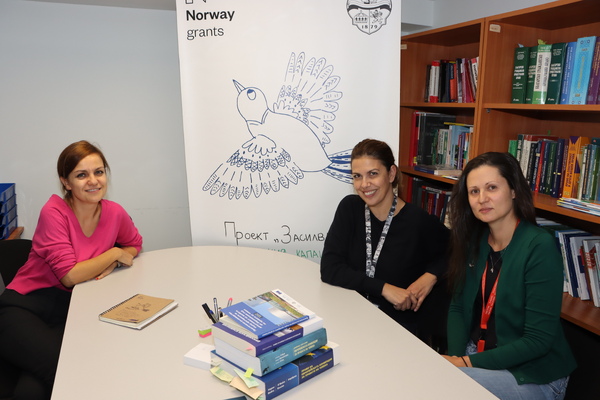
17-01-2025 12:04
A few years ago we shared the story of Judge Georgi Videv and his internship at the European Court of Human Rights (ECHR) in Strasbourg. Today, we continue the topic with a perspective from Bulgaria and the project by the "Representation of the Republic of Bulgaria before the European Court of Human Rights" Directorate in the Ministry of Justice titled “Strengthening National Capacity for the Implementation of the Judgments of the European Court of Human Rights.” We are welcomed at their office by Milena Kotseva, Director of the Directorate, along with Government Agents Maria Dimitrova and Silvina Sobadzhieva.
We start with the inevitable question—what lies behind the mysterious position of "Government Agent"?
Milena: “Agents are those who represent their country before international institutions and defend its interests. In this case, it’s the Council of Europe (to which the ECHR belongs—ed.), whose jurisdiction Bulgaria accepted back in 1992.”
The Government Agent defends the state before the ECHR and prepares submissions for cases. As part of this process, all administrative structures are required to provide the necessary assistance, Silvina and Maria add to the topic.
There’s another very important role for the Government Agent—coordinating the implementation of ECHR judgments. Following a conviction, the state must take measures, which often include legislative changes. In many cases, coordination between different institutions, local authorities, and others is necessary. “It’s complex, but it’s our primary task because we know the ECHR’s practice best, understand the case and practices in other countries, and can therefore explain objectively and clearly what needs to be done,” Maria elaborates.
The "Representation" Directorate has already worked on a project on a similar topic during the previous program period. As a result, complaints from Bulgarian citizens to the Court decreased to a record low of fewer than 500 per year, down from their peak of over 2 000 in 2013.
How are we building on this success now?
Silvina: “Our first project focused on reducing complaints by introducing a preventive mechanism, where we check compliance with the European Convention on Human Rights when amending legislative acts. Now the focus is on the fact that while the statistics on the number of complaints are good, the statistics on implementation are poor. So, we’re focusing on the challenges of enforcement. One major aspect is helping to create a coordination mechanism for enforcement so that all parties involved can collaborate more effectively.”
A key outcome of the project is the creation of a national coordination mechanism for implementing ECHR decisions. Institutions and organizations will be engaged, enabling better collaboration in performing the necessary actions to apply the rulings. The Directorate will coordinate the mechanism’s work. Through this initiative, a formal procedure for implementing ECHR decisions will be introduced, accelerating their application.
The project is implemented in collaboration with the Norwegian Centre for Human Rights at the University of Oslo. The partnership includes training sessions and on-site visits. The New Bulgarian University is also involved in some of the activities. The connection between Bulgaria and Norway dates back to 2015 and reflects Bulgaria’s belief that education is the starting point for successfully implementing ECHR decisions. Another issue related to education is the lack of a human rights textbook in Bulgaria adapted to the country’s legal framework and practice.
Maria: “The main problem is that lawyers are not well-acquainted with the ECHR’s case law, the subject matter, and the entire logic of these national and supranational relationships.”
The project helps in several ways:
- Publishing suitable literature to assist students, educators, and practitioners.
- Introducing a mandatory "Human Rights" course in law programs at universities.
- Supporting the revision of university curricula to better cover this specific field.
Silvina: “The idea was first to conduct an independent study to determine whether the teaching is effective or not. Nine law faculties across the country were examined, and based on that, teaching guidelines were developed, along with a doctoral program.”
Milena adds: “The subject matter is very specific, and no one else in the administration has this expertise.”
You can find publications on ECHR decisions, translations verified by government agents, and other useful literature on the topic here: https://humanrights.bg/. Maintaining the website is also part of the project’s activities and an example of sustaining good practices.





_1200x600_f7a.jpg)
_600x400_38e.jpg)